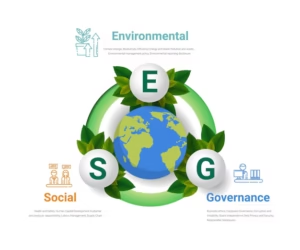Fresh Insights for Ambitious Firms in the Middle East

The Gulf Cooperation Council (GCC) is living through one of the most dynamic periods in its economic history. Once powered almost entirely by oil, the region is now diversifying with speed and conviction.
New cities, innovation hubs and cross-border investments are transforming the landscape. In this environment, family businesses that once operated quietly within their home markets are stepping onto regional and even global stages.
Family enterprises form the backbone of GCC economies, contributing nearly 60 percent of the region’s GDP and employing over 80 percent of its private sector workforce.
Yet research shows that almost 70 percent of these businesses fail to transition successfully to the second generation.
The leap from a family-led business to a professionally managed corporate house is both an opportunity and a test of leadership. The challenge is not growth alone, but how to grow without losing the soul that built the enterprise — the next stage of family business transformation in the region.
Many GCC businesses are realising that growth demands structure. Professional management systems, transparent governance and strategic planning are not optional any longer.
Yet, in the race to modernise, the warmth and trust that have sustained family businesses must not be sacrificed.
The best leaders in the region are finding ways to balance both worlds.
They bring in seasoned professionals but ground them in family values such as integrity, hospitality and long-term commitment.
This combination of tradition and discipline creates a rare corporate identity that global competitors cannot replicate.
Leadership development here plays a crucial role. Through targeted programs, family and professional leaders can learn how to build mutual trust and shared governance, reducing friction that often arises during transitions.
 The Chalhoub Group in the United Arab Emirates has evolved from a family-led retail business into a regional powerhouse with over 16,000 employees. Patrick Chalhoub managed this transformation by professionalising leadership structures while retaining the personal touch that defines Gulf family enterprises.
The Chalhoub Group in the United Arab Emirates has evolved from a family-led retail business into a regional powerhouse with over 16,000 employees. Patrick Chalhoub managed this transformation by professionalising leadership structures while retaining the personal touch that defines Gulf family enterprises.
We have seen similar approaches succeed in other regional firms, especially when professionalisation is treated as a shared learning journey.
Try this: Invite external professionals into key roles but pair them with family mentors for six months.
It helps blend capability with culture and creates natural buy-in.
As GCC companies expand across borders, they face a new kind of leadership test, one that demands diversity, adaptability and collaboration beyond familiar boundaries.
 The GCC is not a single market. Each country carries its own business laws, cultural nuances and workforce dynamics.
The GCC is not a single market. Each country carries its own business laws, cultural nuances and workforce dynamics.
Leaders who understand this are assembling teams that reflect the region’s diversity.
A leadership team that includes talent from across the GCC and neighbouring regions gains a panoramic view of markets.
It helps the business adapt faster, navigate regulations more effectively and innovate more confidently.
Example: The BFL Group, which started in the UAE, expanded across the Middle East with a leadership team representing multiple nationalities and professional backgrounds. This cross-border blend allows them to interpret market signals from Riyadh to Doha with precision.
“Real diversity is not about how many flags you can list on your website. It is about how many perspectives you are willing to hear in the boardroom.”
Across our work in the region, we have seen how cross-cultural collaboration often begins with something as simple as a conversation.
Leaders learning to listen differently, teams learning to challenge respectfully.
When that shift happens, alignment replaces assumption and collaboration begins — a hallmark of leadership development in the Middle East.
Try this: Create a short “regional immersion” program for senior leaders. Let them spend a few days working from another GCC market office. Nothing builds perspective faster than proximity.
Our cross-cultural collaboration workshops have shown that awareness of local sensitivities is often what unlocks innovation.
Technology has often been viewed through an operational lens that reads efficiency, automation, analytics.
Far less attention has been given to how it can transform leadership communication.
In the GCC, where many companies are spread across borders and generations, communication gaps can easily appear. Digital platforms now make it possible for leadership to maintain clarity, transparency and emotional connection.
 Example: Some forward-looking conglomerates in Dubai have begun using short video messages from their CEOs to reach employees across the GCC.
Example: Some forward-looking conglomerates in Dubai have begun using short video messages from their CEOs to reach employees across the GCC.
These are followed by quick surveys and AI-generated insights that help leaders respond faster.
Insight: AI adoption in the GCC is advancing, especially in areas supported by clear policy mandates.
The same clarity is now needed for leadership engagement technology, where adoption still lags behind operational uses.
“Technology cannot replace a leader’s presence, but it can extend it.”
We have noticed that when leaders communicate with “intent” not just information, engagement changes almost overnight. A quick message with the right tone often carries more weight than a long speech at the end of the quarter.
Try this: Replace one monthly email update with a 90-second video message.
It humanises leadership and makes communication more relatable across generations.
Succession is often the unspoken tension in family enterprises. Tradition may dictate that leadership remains within the family but sustainability demands merit and readiness.
Without a transparent succession plan, uncertainty breeds conflict and hesitation. A clear structure for leadership transition reassures employees, investors and partners that the company’s future is secure.

Example: Several large Saudi industrial groups are now experimenting with hybrid leadership models where a non-family professional serves as Group CEO while a family member acts as Executive Chairman.
This allows balance between continuity and capability.
Statistics: Only 30 percent of family businesses survive beyond the second generation, 12 percent reach the third and a mere 3 percent make it to the fourth.
“Succession delayed is succession decided by circumstance, not by choice.”
Try this: Start grooming potential successors early.
Give them responsibility for one key business unit for 12–18 months and assess both results and relationships.
In the GCC, regulation evolves as quickly as opportunity. VAT, Emiratisation, Saudisation and data laws continue to reshape how businesses grow.
Effective leaders treat regulatory understanding as a strategic skill — not an administrative task.
They set up Leadership Foresight Sessions to scan the horizon for policy changes and assess business impact early.
Example: When VAT was first introduced in the UAE, proactive companies redesigned pricing models a year ahead, turning compliance into a competitive advantage.
“Regulation rarely surprises those who bother to look up from their spreadsheets.”
We have observed in our leadership development programs that agility and foresight often surface as the most underused muscles. Once leaders learn to scan the environment rather than react to it, they stop firefighting and start future-proofing.
Try this: Hold a quarterly 45-minute Leadership Foresight Session with senior leaders. Discuss one upcoming regulation and explore its impact before it lands.
Strong corporate governance in the GCC depends on leaders who anticipate change rather than react to it.
 The world’s eyes are now on sustainability but ESG in the GCC must not be a foreign concept imported wholesale. It must be woven into the fabric of regional identity.
The world’s eyes are now on sustainability but ESG in the GCC must not be a foreign concept imported wholesale. It must be woven into the fabric of regional identity.
Governance is already proving to be a value driver.
GCC companies with higher governance scores often enjoy stronger market valuations. Yet younger, family-controlled firms tend to score lower unless they consciously professionalise their governance structures.
Example: Saudi and Emirati companies that align ESG initiatives with cultural priorities such as water conservation, women’s empowerment or local community upliftment are gaining both credibility and investor interest.
Research shows: Across 126 Saudi family firms, women’s empowerment significantly strengthened the link between corporate governance and sustainability performance.
Proof that culturally sensitive ESG can also be high-impact strategy.
In our leadership workshops, many executives admit they want to champion ESG but do not know where to start. The starting point is simpler than most think, it begins with a question every leader must ask: what does responsibility look like in our context?
Try this: Choose one ESG goal that connects deeply with your company’s values and start small. Authenticity grows stronger than scale in this space.
 The GCC’s young population is bursting with ideas. Inside large family groups, however, the structure can sometimes stifle innovation.
The GCC’s young population is bursting with ideas. Inside large family groups, however, the structure can sometimes stifle innovation.
Intrapreneurship offers a way forward.
By creating spaces where employees and next-generation leaders can experiment safely, established firms can unlock creativity without losing control.
Example: A retail group in the UAE established a small digital business within its core company to test new consumer models. Led by a younger family member, it was given autonomy to fail fast and learn fast.
Some of its best ideas now fuel core operations.
Try this: Host an annual “innovation week” where teams pitch business ideas that improve efficiency or customer experience.
Fund the top two. It keeps creativity real and energy high.
The GCC’s next corporate giants will not be built by accident. They will emerge from family enterprises that have the courage to evolve their leadership models while staying true to their identity.
The region is entering a stage where leadership maturity will define success more than market opportunity.
Visionary founders are learning to share power without losing purpose.
Successors are learning to earn respect before expecting authority.
Professional leaders are learning to honour heritage while driving change.
This evolution is already underway. Across boardrooms in Dubai, Riyadh and Doha, conversations are shifting — from expansion to culture, from structure to stewardship, from management to meaning.
Family businesses have long been the heart of the Gulf’s economy. Now they must also become its mind — strategic, inclusive and globally credible.
At The Yellow Spot, we have seen how deliberate leadership work can turn capability into culture. The GCC’s next corporate giants will come from those who treat leadership not as a department but as a discipline — one that shapes every decision, every hire and every relationship.
Growth does not begin with a plan. It begins with a decision — made at the top and lived by everyone who follows.
To know more about how The Yellow Spot can help you on your Leadership journey, Visit ‘https://www.theyellowspot.com’ for more info or reach out at info@theyellowspot.com / India: +91 99677 14310, +91 87792 84314
#leadership skills # First Time Managers Training # Mentorship # Effective Communication # corporate training # best corporate training companies


Blue Arch CHS, Louis School Lane, Four Bungalows, Andheri West, Mumbai – 400053